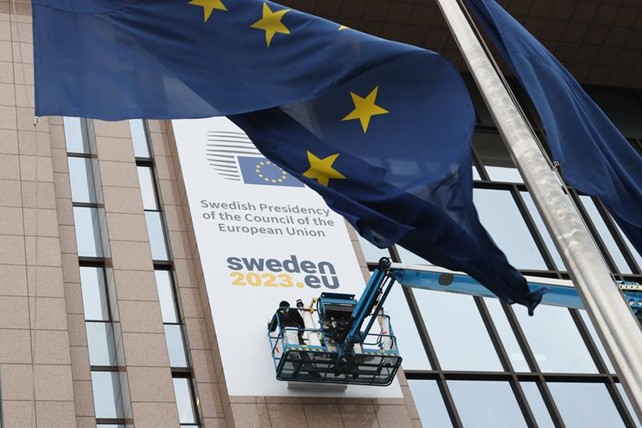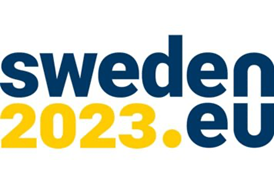
by Mathilda Hultström
The nationalist ideology that was denounced in Europe after the Second World War is today experiencing a renaissance across the continent. Populism in the European Union, while not being a new occurrence, has acquired an alarming proportion of the electorate in recent times during the extended period of crises and turmoil. The eurozone crisis followed by the refugee crisis and the Brexit disintegration challenge have all contributed to the rise of populist sentiments. In recent years, there has been a significant increase in far right populist parties in the European Union. This has been widely debated and concern has arisen regarding the effect this will have on the European Union and its work.
Scholars have talked about the right-populist wave between 2015 and 2020, with the UK leaving the Union in 2016 followed by Poland and Hungary reelecting their right populist parties in 2018 and 2019 and the election of populist parties in countries such as Italy and Austria. However, during the election in Sweden in 2022, the far right populist party Swedish Democrats got a pivotal position and doubled their votes with the young voters from the last election. Sweden now has a minority government including the Moderate party, Christian Democrats and the Liberals. The government relies on the support of the Swedish Democrats as the second largest party. The populist wave doesn’t seem to have stopped. Sweden also took over the EU presidency 2023 in the council of ministers. This will most likely be influenced by the Swedish right wing party, the Swedish Democrats.
So what is populism?
Populism can be defined as a thin ideology with aspects of anti-elitism and a belief in the ”pure people” against the ”corrupt elite”. As a result of populism being a thin ideology, it often has a connected set of beliefs, as for example nationalism. Populists are often less willing to give up national sovereignty, more likely to resist cues from foreign actors and less willing to promote policies that are in favor to the elite or to foreigners, when populism is blended with nationalism. Populist countries also had the highest infection rates during the pandemic and are also less willing to cooperate internationally.
The case of Sweden
Parties that previously have been dismissed as too radical or extreme in their opinions are currently winning seats in some of Europe’s leading democracies. The Sweden Democrats went from being a small radical right wing party to being the second largest one in Sweden with governing power. The Sweden Democrats were founded on illiberal and racist values and wanted to highlight the migration agenda. The party made statements describing muslims and Islam as the biggest threat to Swedish society. During the years that led up to today, the party underwent internal reforms, for example a reform to ban nazi uniforms and to change their party symbol from a flaming torch to a flower. This was done to make themselves more respectable and to get into the parliament.
In the 2022 Swedish election, the Swedish Democrats became the second largest party. Even though the party is not in the government, they have a pivotal position; being the second largest party, they influence the policies and decisions. The momentum behind the increase in right wing populist parties can be described as a combination of democracy fatigue, globalization and the economic crisis of the 2000s and the migration crisis and uncontrolled flows that occurred simultaneously with terrorist attacks in several Member States.

In Sweden in September 2022, after years of social democratic rule, the right wing parties got to power. Today the government has come to an agreement with the Swedish democrats ”Tidöavtalet” that they have to honor. The key points in the agenda for the Swedish presidency according to the Swedish prime minister Ulf Kristensson are to promote security, resilience, prosperity, democratic values and rule of law. There is also a strong focus on Russia’s war against Ukraine.
How could populism impact EU work?
The rise of right wing populist parties affect the EU’s work in several ways. They are often eurosceptic and challenge the EU’s institutions and policies wanting a more nationalistic governance. Not all populist parties are the same, but here are four ways nationalist parties could and have affected the European Union’s work in past years.
- Policy making – Populist parties can be more likely to oppose EU initiatives or policies in areas as immigration and climate which makes consensus hard to reach among the member states. This can result in a gridlock and slow down the decision-making process. One example is Poland and Hungary blocking EU’s long-term budget plan for the Coronavirus recovery fund in 2020 due to its connection to rule of law and that they felt a limitation to sovereignty.
- EU institutions – Populist parties may be more likely to question and challenge the institutions in the EU and thus their authorities. This can be shown in disrupting tactics, for example boycotting meetings and filibustering that consequently slows down the decision making process. The rise of Populist parties has been followed by a decrease in trust in established political institutions.
- Increasing polarization – Populist parties often have an “us against them” mentality which can contribute to polarization and create a divide between member states. In this sense, cooperation will be hard. Populist parties both receive and radiate high proportions of dislike from mainstream parties; this contributes to affective polarization. This can have consequences reaching from parties not being willing to engage in support for political violence and discrimination.
- EU integration – The right wing populist parties often oppose further integration in the EU as a result of advocating for national sovereignty and having an anti-EU rhetoric. This can lead to difficulties in collaboration and to pass policies and laws. Collaboration can be especially difficult in areas such as foreign policy and immigration due to large divisions between Member S
Concluding remarks
We know that populist parties can have an impact on the European Union and its work. The populist wave has continued as Populist parties continue to gain support. Populist sentiments have contributed to disintegration in the EU and hampered policy making; how the Swedish Democrats will influence the presidency in the Council and how the populist ideas of the party will be reflected in the council’s work is yet to be seen.
